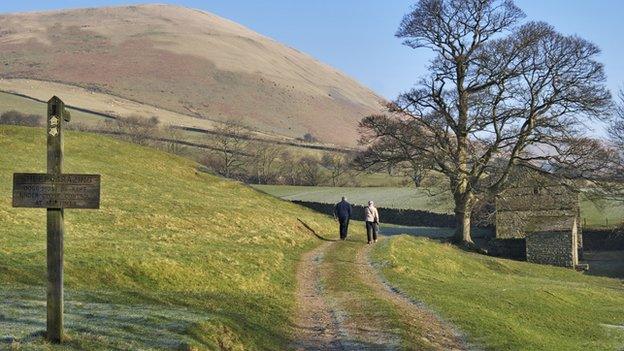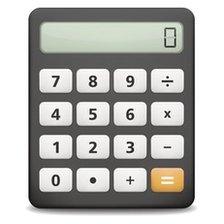The 2015-16 pension changes explained in 10 questions
- Published

The pension landscape now looks different - but there are many potential pitfalls if you take the wrong path
What the government calls "pension freedoms" will be in place from Easter Monday. But anyone nearing retirement would do well to note the drawbacks, as well as the advantages.
Taking money out of your pension could still land you with a large tax bill.
From next year, a new limit on the total size of a pension pot could mean your income from an annuity will be less than you expect.
Many in the industry fear a new wave of fraud.
It will soon become harder to qualify for a full state pension.
Without proper advice, the changes could make it easier to run out of money before you die.

1. Who is affected by the changes?
The big change affects 4.5 million people with Defined Contribution (DC) schemes.
With this type of scheme your monthly pension savings go into a big pot, which will eventually be used to buy an income for your retirement. You can now access that pot freely from the age of 55 (57 from 2028), taking out as much as you like, subject to tax.
Some people with Defined Benefit (DB) pensions - which promise a particular annual income - will be able to swap them for DC schemes.


The taxman is watching closely
2. How much tax will I have to pay?
You can take 25% of your pension pot as a tax-free lump sum. Or you can take out smaller amounts, of which the first 25% will be tax free on each occasion.
But you will have to pay income tax on the amount you withdraw over and above the 25% tax-free allowance.
If that amount, added to the rest of your income, exceeds £42,386 (2015-16), for example, you will pay tax at 40% or more.
If the amount exceeds £100,000, you will begin to lose your personal allowance, resulting in an even higher tax charge.

3. What tax will I have to pay if I buy a pension income?
If you buy an annuity (an income for life), or you take income drawdown (leaving your pension pot invested), you will only pay tax on the income.
Anyone with total income below £10,600 in 2015-16 will not pay anything.

4. How easy is it to pass on a pension to my dependants?
The new rules make it easier. If you die before the age of 75, the pension pot can be passed on tax free.
If you die after 75, and your descendants want the whole pot as a lump sum, they will have to pay 45% tax, instead of 55% previously.
However, the government is considering whether to reduce this to an individual's income tax rate - known as the marginal rate - from April 2016.
Those who draw down income from an inherited pot will, in any case, pay tax at their marginal rate.


Pension Calculators
State pension calculator DWP, external
Combined state, workplace and DC calculator, from Standard Life, external
Should I delay buying an annuity? Hargreaves Lansdown , external
How much can I earn from a DC pot? Money Advice Service, external

5. Are annuities still a good idea?
The pension changes mean that many people who would have bought an annuity, will not now do so.
Income drawdown is a more flexible option for many. In fact it has not been compulsory to buy an annuity since April 2011.
Nevertheless, for many people, annuities will still be the best option - or a mixture of an annuity and drawdown.

6. Can I sell an annuity if I have already bought one?

In the Budget of March 2015, the chancellor said he would make this possible, and the government will now carry out a consultation. This could allow you to swap your annuity for cash, from April 2016.
However, no one knows how much demand there will be for second-hand annuities. Many suspect that those selling their annuities will find it hard to get a good price.

7. What if I am in a Defined Benefit (DB) scheme - can I move to a DC scheme?
In theory you can - if your employer allows it. Transferring to a DC scheme means you could get your money out more easily, and pass it on to descendants. But again, you may not get the best value.
DB schemes usually offer inflation proofing, and the ability to pass some of the income on to a spouse.
They also have a particular advantage if you are getting close to the maximum amount you are allowed to have in a pension pot (see below).

8. What are the new rules on how much you can save in a pension?

From 6 April 2016, the maximum you can have in a pension pot will be £1m, reduced from £1.25m. This figure will rise with inflation from April 2018. The government says the change will only affect wealthy people.
But a 60 year-old spending all their £1m pension pot on an inflation-linked annuity could - according to current annuity rates - expect a maximum annual income of around £27,000. You can have a larger pension pot if you wish, but you will pay 55% tax on any withdrawals.
However, anyone in a DB scheme will be treated more generously.
Such schemes have a notional capital value, calculated by multiplying the annual income by 20. So if the scheme pays an income of £10,000 a year, the notional value of the pension pot is £200,000.
Given that the maximum pot will now be £1m, members of DB schemes can therefore expect annual incomes of up to £50,000.
The annual allowance for pensions savings remains at £40,000.

9. Is the state pension changing?
Yes. From 6 April 2016. The additional state pension and part of pension credit is being abolished, to be replaced with a single-tier state pension. The rate will rise from £113 a week to around £155, but the precise amount will be set towards the end of 2015.
However, most people will not qualify for the full pension, as their schemes were contracted out of the second state pension, and they paid lower National Insurance (NI) contributions as a result. To qualify for the full pension, you will now need 35 years of NI contributions, instead of 30 previously.


10. What advice is available?
Free guidance - not advice - is available through the Pension Wise website, external.
Those aged 55 or above can book a telephone interview with the Pensions Advisory Service, or a face-to-face interview with Citizens Advice.
The service will give general guidance, but cannot advise on specific pension policies or investments.
The number to book is 030 0330 1001. Otherwise advice can be had through private providers, which will usually be chargeable.
